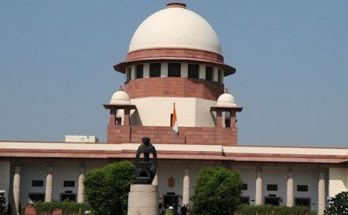
New Delhi: The Supreme Court on Wednesday deferred further arguments on the constitutional validity of the Waqf (Amendment) Act, 2025, scheduling the next hearing for Thursday. No interim orders have been passed as of yet.
The matter was heard by a bench led by Chief Justice Sanjiv Khanna, along with Justices Sanjay Kumar and K.V. Viswanathan. During the proceedings, the Chief Justice expressed concern over recent reports of violence in West Bengal allegedly linked to the controversial amendments to the Waqf Act.
The bench posed a series of pointed questions to the Centre, particularly regarding the implications of the amended law on religious participation. One significant query raised was whether the government would now permit Muslims to serve on Hindu religious trust boards—a move that could mark a significant shift in existing legal frameworks.
A key issue under scrutiny is the removal of the long-established doctrine of waqf by user—a principle that recognizes religious properties as waqf based on consistent community usage, even in the absence of formal documentation. The court warned that dismantling this principle could lead to far-reaching legal complications.
“How will such waqfs be registered? What documentation will support their claims? This could result in reversing historical designations,” the bench noted. While acknowledging potential misuse, the court maintained that the principle remains widely respected and deeply rooted in religious practice.
Solicitor General Tushar Mehta, representing the Union government, argued that a significant segment of the Muslim population preferred not to be governed by the Waqf Act. In response, the bench pressed the Centre on whether it intended to extend reciprocal rights to Muslims within Hindu religious endowments.
Senior advocates Kapil Sibal, Abhishek Manu Singhvi, and Huzefa Ahmadi, representing the petitioners, strongly contested the amended provisions. They argued that the law restricts the creation of waqf exclusively to Muslims and imposes a five-year threshold of religious practice as proof—criteria they claim are arbitrary and discriminatory.
Sibal further challenged the state’s authority to define religious identity, while Ahmadi emphasized that waqf by user is a fundamental religious tradition that cannot be retroactively invalidated. Singhvi urged the court to retain jurisdiction over the matter given its national importance, rather than relegating it to a High Court.
Earlier, before further legal proceedings, CJI Khanna directed both sides to clarify whether the Supreme Court should continue to hear the matter or consider transferring it to a High Court.
“There are two aspects we want both sides to address,” the CJI stated. “Firstly, should the matter remain with us or be sent to the High Court?
Secondly, clearly summarize what you wish to argue.”
The case has drawn widespread attention, with more than 70 petitions filed challenging the amended law. Petitioners include AIMIM leader Asaduddin Owaisi, the All India Muslim Personal Law Board (AIMPLB), Jamiat Ulama-i-Hind, the DMK, and several Congress MPs.



